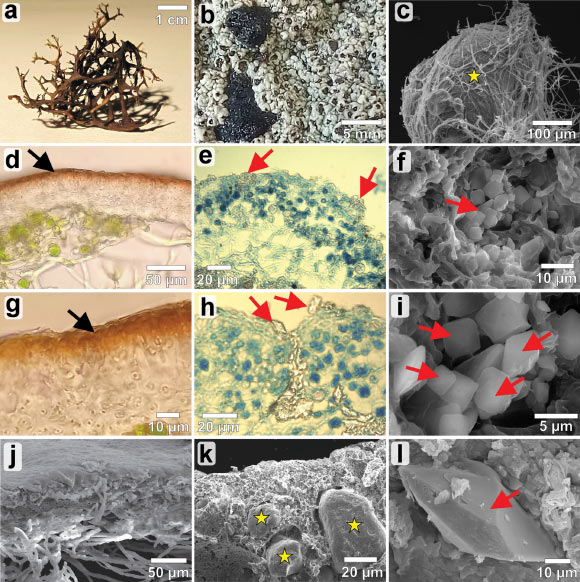The pathogens Giardia duodenalis and Cryptosporidium are common causes of sometimes-fatal intestinal diseases in humans, other mammals and birds worldwide.
Now, findings from researchers at Texas A&M University provide new, evidence-based insight…

The pathogens Giardia duodenalis and Cryptosporidium are common causes of sometimes-fatal intestinal diseases in humans, other mammals and birds worldwide.
Now, findings from researchers at Texas A&M University provide new, evidence-based insight…

Certain lichen species can withstand Mars-like conditions with an X-ray radiation dose of 50 Gy (Grays) that is expected on the Mars surface over one year of strong solar activity, according to new research from Jagiellonian University and the…

A new study from Cedars-Sinai examined whether a specialized diet could improve symptoms of gastrointestinal disorders linked to an imbalance in gut microbiota.
The research tested the elemental diet’s effectiveness and explored whether improving…

A group of diatom species belonging to the Nitzschia genus, gave up on photosynthesis and now get their carbon straight from their environment, thanks to a bacterial gene picked up by an ancestor. Gregory Jedd of Temasek Life Sciences Laboratory,…

Genomic changes in the infectious yeast Candida tropicalis may play a role in its resistance to antifungals, according to a study published on April 1 in the open-access journal, PLOS Biology by Guanghua Huang at Fudan University, China, and…

Imaging wall-less plant cells every six minutes for 24 hours revealed how the cells build their protective barriers.

The field of cosmetic and dermatological research has increasingly focused on bioactive compounds derived from marine and plant sources due to their potential benefits for skin health. A study published in

Scientists studying mice have uncovered a delicate protein rivalry in the brain that, when thrown off balance, may cause autism-like behaviors. This discovery opens up a potentially powerful new path for autism treatment by targeting how nerve…

Mpox has the potential to become a significant global health threat if taken too lightly, according to scientists at the University of Surrey.
In a letter published in Nature Medicine, researchers highlight how mpox — traditionally spread from…

Lead, pesticides, brominated flame retardants, plastic additives, polychlorinated biphenyls (PCBs), and heavy metals. This is what researchers at Lund University in Sweden found when they collected dead hedgehogs to investigate the environmental…